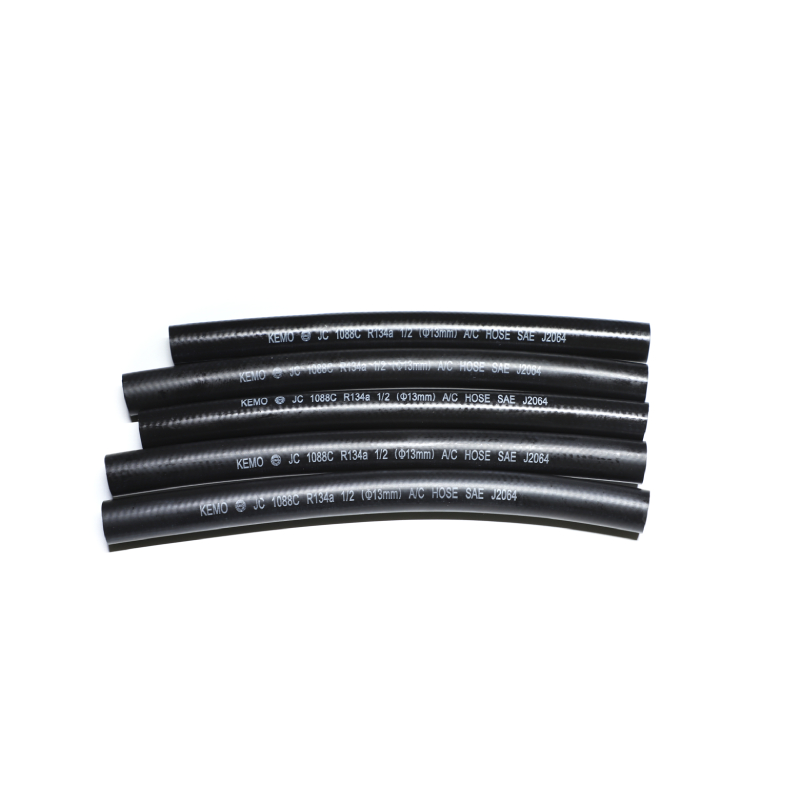Choosing the Right Air Conditioning Hose for Efficient Performance and Durability
Set . 24, 2024 06:23 Back to list
Choosing the Right Air Conditioning Hose for Efficient Performance and Durability
Understanding Air Conditioning Hoses Essential Components for Optimal Performance
When it comes to vehicle air conditioning systems, one often-overlooked yet critical component is the air conditioning hose. These hoses play a vital role in ensuring that your AC system operates efficiently, providing the comfort we expect in our cars, especially during hot summer months. This article delves into the significance of air conditioning hoses, their types, usual issues, and maintenance tips to keep your car's air conditioning system in top shape.
The Function of Air Conditioning Hoses
Air conditioning hoses are responsible for transporting refrigerant between various components of the AC system, including the compressor, condenser, evaporator, and expansion valve. The system operates by cycling the refrigerant to absorb heat from the vehicle's cabin and release it outside. The hoses that facilitate these processes are typically made of durable materials such as rubber or reinforced plastic, engineered to withstand the high pressures and temperatures of the refrigerant as it flows through.
Types of Air Conditioning Hoses
There are generally two types of air conditioning hoses in most vehicles high-pressure hoses and low-pressure hoses.
1. High-Pressure Hoses These hoses transport refrigerant from the compressor to the condenser. They are designed to withstand higher pressures and temperatures, often exhibiting thicker walls and reinforced structures.
2. Low-Pressure Hoses These are responsible for carrying refrigerant back from the evaporator to the compressor. While they operate under lower pressure compared to high-pressure hoses, they still require strong construction to handle varying operational conditions.
Common Issues with Air Conditioning Hoses
Over time, air conditioning hoses can develop various issues that can affect the performance of the entire AC system. Common problems include
- Leaks Hoses can develop cracks or pinholes due to wear and tear, leading to refrigerant leaks. This can result in reduced cooling efficiency or complete AC failure.
air conditioning hose

- Clogging Dust, debris, and moisture can accumulate in the hoses, leading to blockages that affect refrigerant flow.
- Deterioration Exposure to extreme temperatures and UV light can cause hoses to degrade, losing their flexibility and structural integrity.
Maintenance Tips
Regular maintenance of your vehicle's air conditioning system, including the hoses, can prolong its lifespan and ensure optimal performance. Here are some tips
- Visual Inspections Periodically check the hoses for signs of wear, such as cracks, bulges, or discoloration. Any unusual signs could indicate potential problems.
- Listen for Unusual Noises If you hear hissing or bubbling sounds when the AC is on, it may point to a refrigerant leak.
- Professional Servicing Regularly servicing your vehicle with a qualified technician can help catch issues early. Technicians can inspect the hoses, check for leaks, and replace any faulty components if necessary.
- Keeping it Clean Ensure that the area around the hoses is clean and free from debris. Moisture and dirt can cause deterioration over time.
Conclusion
In summary, air conditioning hoses are essential components that contribute significantly to the performance of your vehicle's AC system. Understanding their function, being aware of potential issues, and engaging in routine maintenance can help ensure that your car remains cool and comfortable during those hot months. By taking proactive steps, you can enjoy a fully functional air conditioning system and a pleasant driving experience.
